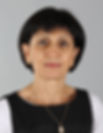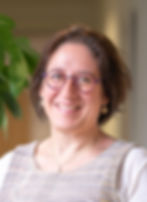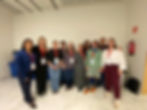About Occupational Therapy
Occupational Therapy and Occupational Science are integral fields with focus on human occupation, and on promoting well-being through meaningful engagement in daily activities. Understanding the foundations of this profession and this discipline involves exploring definitions, models, frameworks, and additional theoretical concepts.
Foundations of Occupational Therapy and Occupational Science
Occupational therapy, as defined by the World Federation of Occupational Therapists (WFOT, 2012), is a client-centred health profession aiming to enhance health and well-being through occupation. The primary goal is to enable individuals to participate and to engage in activities meaningful to their daily life. This includes working with people and communities to enhance their ability to engage in their desired occupations, modifying occupations or environmental aspects as needed. Concepts of doing, being, becoming, and belonging, including relationships between individuals, their environment, and occupations, form the basis of occupational therapy.
Occupational science as a research discipline is concerned with studying humans as occupational beings (Yerxa, 1990) and human occupation. Its purpose is to generate knowledge about the form, function, and meaning of human occupation across the lifespan, including how occupations influence and are influenced by health, well-being, and the environment.
The ENOTHE Tuning Project Group has aimed to bring these concepts and approaches together to provide a comparable basis for developing curricula for each of the three academic cycles, whilst allowing and stipulating country specific differences and encapsulating the progression of education across the cycles. The ENOTHE Tuning Project Group emphasises the close reciprocal interrelation between occupational therapy and occupational science, recommending their integrated teaching in curricula.
Models and Frameworks informing Occupational Therapy and Occupational Science
Occupational therapy practice is guided by various models and frameworks, each contributing a unique perspective to the understanding of human occupation. Notable examples, among valuable others, include the Person-Environment-Occupation (PEO) Model, the Person-Environment-Occupation-Performance (PEOP) Model, the Canadian Model of Occupational Performance and Engagement (CMOP-E), and KAWA River Model.
The International Social Transformation through Occupation Network (ISTTON) champions a dynamic approach to using occupation for societal transformation. This aligns with UNESCO's vision of restructuring societal systems. Occupational therapists traditionally embrace professional tasks and roles such as adaptation, advocacy, coaching, collaboration, and support for active participation in meaningful activities. Diverse models, like the Kawa Model, highlight cultural nuances and offer valuable contrasts to Western perspectives.
Additional Theoretical and Conceptual Foundations
Occupational therapy's focus has evolved over time, influenced by changing social and political developments. It actively seeks to address the needs of individuals, communities, and populations, drawing on a rich theoretical foundation. The profession collaborates closely with other professions and disciplines, incorporating frameworks such as the International Classification of Functioning, Disability, and Health (ICF) and the Commission on Social Determinants of Health (CSDH) Conceptual Framework.
Adhering to the WHO Rehabilitation 2030 movement, occupational therapists also work from an interdisciplinary and interprofessional perspective, adopting the WHO Rehabilitation Competency Framework (RCF). This framework defines the core values, beliefs, competences, knowledge, and skills required for rehabilitation practice and service delivery.
Terminology and Language
Terminology in occupational therapy has been a subject of debate, reflecting the profession's evolution, interdisciplinary base, changing societal needs, and cultural and related linguistic differences. Issues surrounding the translation of core terms across languages and the incorporation of expanding concepts like occupational rights and occupational justice contribute to the complexity of occupational therapy language.
Frameworks such as the Occupational Therapy Practice Framework: Domain and Process (OTPF-4) aim to support unification of professional language across countries and languages. The profession's language continues to evolve, aligning with contemporary political and social climates and further research and clarification of significant terms and concepts.
In conclusion, the continuous development and unification of terminology remains very important for the profession in recognition of linguistic and cultural differences across European countries, particularly as terminology and language also inform subject areas and topical issues. The profession's commitment to inter-/multidisciplinary and interprofessional collaboration and evolving language reflects its responsiveness to global and local contexts. The most important education-related terminology is defined in the Glossary.
Associated European Organisations
Founded in 1995, the European Network of Occupational Therapy in Higher Education (ENOTHE) operates as a non-profit association, funded by annual membership subscriptions. Registered as a non-governmental organisation (NGO) under Austrian law in December 2017, ENOTHE aims to stimulate and promote high-quality lifelong education in occupational therapy across Europe. With more than 110 members, ENOTHE focuses on proactive development in occupational therapy education, knowledge sharing among institutions, and promoting occupational therapy within European Higher Education systems in all three educational cycles. The organisation strives to contribute to broader debates on education and its relationship to health and social policy.
Established in 1986, COTEC serves as the coordinating body for the National Associations of Occupational Therapy in Europe, uniting their efforts to enhance standards of professional practice and advance occupational therapy theory to address social and health issues affecting European citizens. The organisation's purpose is to ensure an adequate number of high-quality occupational therapy practitioners and services in Europe. As a non-profit NGO, COTEC represents 33 European Occupational Therapy Associations and over 205,000 Occupational Therapists. Registered in the European Transparency Register since 2014, COTEC ensures an open decision-making process in Europe, working in collaboration with the World Federation of Occupational Therapists (WFOT).
ROTOS was established as a Charity in The Netherlands in 2020 after working as a committee since 2016. ROTOS aims to grow the research connectivity among the European community of occupational therapy and occupational science. The vision of the ROTOS Foundation is to enhance European citizens' lives through occupation-centred research and science by establishing a unified voice for occupational therapy and occupational science research. The overall strategic aim is to ensure that knowledge generated from such research informs and shapes European policy and practice, fostering a robust European profile for researchers in these fields.
The Occupational Therapy Europe Foundation serves as the umbrella organisation for occupational therapy education, practice, and research, unifying these facets to present a cohesive voice for occupational therapy in Europe. The foundation's mission is to enhance the visibility, value, availability, and accessibility of the occupational therapy profession for all European citizens. To achieve this, the foundation has outlined strategic aims, including engagement with and influence on European policy affecting health, participation, and well-being. Additionally, the foundation seeks to foster effective partnerships with service users, professional organisations, and key policymakers in Europe. Furthermore, it is committed to supporting and promoting the development of high-quality occupational therapy professional practice, education, and research through collaboration with its three branches COTEC, ENOTHE, and ROTOS.
Established in 2014, SPOTeurope is a social platform created by and for occupational therapy students across Europe, originating from an idea during an ENOTHE annual meeting. As it grew over the years, SPOTeurope evolved into a community, serving as a valuable resource for both teachers and students. The platform primarily focuses on promoting internationalisation across Europe by sharing opportunities, queries, and perspectives to enhance the occupational therapy student experience and contributing to professional growth within the field of occupational therapy. SPOTeurope collaborates with ENOTHE, organisations, universities, and students, fostering long-term, meaningful collaborations that ensure the inclusion of all occupational therapy students in shaping the future of occupational therapy education across Europe.
Qualifications and Typical Degrees offered in
Occupational Therapy
Directive 2005/36/EC on the recognition of professional qualifications regulates the occupational therapy profession in Europe. The first version of the Tuning competences (Berding et al., 2008) was used to inform national regulations and local profiles that govern the profession in most European countries. Initially, the TUNING project emphasised the diversity of higher education in Europe, providing a framework that maintains differences while ensuring transparency and transferability for student and professional mobility. The methodology encourages a student-centred approach, enabling students to monitor their progress and determine competences based on local social needs. The World Federation of Occupational Therapists (WFOT), Council of Occupational Therapists for the European Countries (COTEC), and the European Network of Occupational Therapy in Higher Education (ENOTHE) provide international standards on education and quality monitoring.
Occupational therapy education is offered throughout Europe at Bachelor, Master and Doctorate levels, though it is acknowledged that not all countries currently offer all three levels of education (see table below). The ENOTHE Tuning Project Group adopts the philosophy of the scientific lenses and strongly suggests and defends the development of scientifically-oriented cycles (BSc, MSc, and PhD) across European Countries. This strategic standpoint aims to reinforce the position of the subject area when responding to the complex social and health needs of the countries. However, the actual situation depicts variations in the structure of programmes, duration, and credits conferred between countries. For example, some Bachelor's programmes have a duration of three years whilst others have four (with 180-240 ECTS respectively). Further information on ECTS and workload for each cycle can be found in Chapter 11. Another difference is that some programmes offer a BA degree, while others have a BSc degree. Furthermore, the name of the academic award varies between Ergotherapy and Occupational Therapy.
Typical Degrees Offered in the Subject Area (adapted from Berding et al., 2008)
Entry requirement:
University requirements, usually 12 years school before entry. In some cases, no criminal record.
- Bachelor of Science in Occupational Therapy
-
Bachelor of Health Science
- Professional Bachelor in Occupational Therapy
- Diploma in Occupational Therapy
In most European countries occupational therapy education is offered at University level. However, there are opportunities for occupational therapy assistants (e.g., UK) and vocational training for occupational therapy (e.g., Germany). Bachelor programmes in most European countries are primarily focusing on providing students with foundational knowledge and practical skills necessary for entry-level practice in occupational therapy. The curriculum content of Bachelor occupational therapy programmes is carefully designed to strike a balance between theoretical knowledge and practical competences.
Master programmes have developed in the last two-three decades in Europe, building upon the first educational cycle, requiring a Bachelor’s degree in occupational therapy (or equivalent) or in a related subject as entry criteria. Post-professional Master programmes are continuing academic or professional occupational therapy career paths with emphasis on research and/or professional intra- and interdisciplinary knowledge and skills (Costa et al., 2020). In some countries, there has also been a development of professional-entry (sometimes called pre-registration) Masters in Occupational Therapy programmes. Designed with content similar to the Bachelors curriculum, these programmes are designed to educate future Occupational Therapists. However, these entry-level Masters programmes are not the focus of the TUNING competences.
In some countries, it is possible to do a PhD or professional doctorate in occupational therapy. However, most PhD candidates are supervised by academics from adjacent fields, such as social and health sciences or psychology due to the lack of available supervisors with a background in occupational science or occupational therapy. There are few doctoral programmes available to date with only 9 European countries offering such programmes out of a possible 33 countries, according to the COTEC profile of the profession, 2023. One PhD in Occupational Science programme is available and is a newly established European Joint Doctoral Programme (from 2020). Currently, there is a need to increase the number of Masters programmes and Doctoral programmes across Europe, as these are important foundations for advancing research and education in occupational therapy and occupational science. According to the COTEC review of the profession (COTEC, 2023), the majority of European countries require academic educators to have a Masters or Doctorate qualification, in order to be able to teach in occupational therapy programmes in the academic institutions.
In Europe, occupational therapy programmes have been developed at universities, most commonly within universities of applied sciences, especially in the late 20th and early 21st century, with the hosting institutions and educational formats currently varying between countries. The extent of academic programmes is dependent on the academic status of occupational therapy in the according country. In some European countries, the establishment of Bachelor programmes started at the beginning of the 21st century. Occupational therapy programmes are reflective of the academic traditions of the various countries, displaying qualifications ranging from non-academic vocational training to diplomas and to the most common academic qualifications, Bachelor and Masters degrees.
Most occupational therapy programmes are situated in departments of health sciences, some are affiliated with medical and/or behavioural as well as social sciences, or rehabilitation oriented institutions in their universities. Often, Bachelor and Master students receive a double degree, where one is a professional degree in occupational therapy (which allows registration for practice) and the other is an academic degree. The latter ensures via a research thesis that the theoretical expertise and knowledge of occupational therapy and related subjects adhere to a high scientific and academic standard. Most countries have a state regulated qualification for practice, but these may be associated with different health structures. For example, registration with a medical council including compulsory membership, compared to accreditation by a health department.
The curriculum content of occupational therapy programmes in Europe commonly includes subjects of anatomy and physiology, psychology, sociology, pedagogy, anthropology, research methods, evidence-based practice, medical subjects, organisational management, participation and social inclusion as well as health-related ethics, legislative matters and social justice. It is important to note that the specific subjects and their depth can vary depending on the institution and legal foundations as well as health-related needs of the country where the programmes are offered. Additionally, occupational therapy programmes incorporate practical (also clinical) placements related to corresponding skills-labs to provide students with hands-on experience and exposure to real-world healthcare settings. Programmes that are approved by the World Federation of Occupational Therapists (WFOT) require students to successfully complete a minimum of 1,000 practice placement hours as part of the education programme (WFOT, 2016).
Mapping typical occupations and tasks
in the work field of graduates
Occupational Therapists in Europe work in a large variety of fields, contributing a unique area of expertise with focus on human occupation and participation. Occupational Therapists work in teams that are intra- and/or interprofessional, pre-existing, or established by the therapists themselves (e.g. in private practice). There are corresponding fields of practice as well as variation across countries. Variation is influenced due to factors such as national reimbursement and insurance systems for health and social care, tertiary education systems, and/or the established traditions of other professions such as social work and nursing. The typical fields of practice for Occupational Therapists are informed by three aspects: topical areas, settings and roles of Occupational Therapists.
The practice of occupational therapy extends across a variety of healthcare, social care and community settings, offering a broad spectrum of employment opportunities. In these fields, Occupational Therapists often choose specialised areas to tailor their expertise to clients’ unique needs. Currently, many Occupational Therapists are working in:
-
Health care: hospitals in various units (child and youth care, mental health, neurology; osteo-articular; rheumatology; burns; among others), primary health care centres; residences and day centres for the elderly, etc.
-
Social areas: government and public administration services; municipalities; social resources; attention to populations in vulnerable conditions (poverty reduction, displaced persons, among other collectives); public policies; NGOs; user associations; self-employed; public and private schools; teaching; research, etc.
In both cases, the occupational therapy objectives are focused on the reduction of inequalities (health and social) from an occupational perspective, enacting and advocating for inclusion and participation in society.
Occupational Therapists are employed within clinics, hospitals, rehabilitation and health centres, nursing homes, residential care facilities, home health agencies, outpatient rehabilitation centres, etc. In some countries, Occupational Therapists work within school systems or act as consultants for work-related safety and productivity. They can also be self-employed, working in private independent practice. Settings continue to develop in relation to societal and political change, creating new opportunities for Occupational Therapists in many countries. Emerging sites include community-based settings, where Occupational Therapists focus on enhancing individuals' participation in their communities as well as the occupational engagement of communities as a collective.
In addition to practice, some Occupational Therapists engage in further academic study, gaining enhanced qualifications (MSc and/or PhD). Many of these Occupational Therapists are employed in educational settings to support teaching and research within occupational therapy programmes, whilst others remain in practice settings, adding to the research and evidence base of their area of speciality.
More recently, additional contemporary fields are emerging, encompassing areas such as community development, health promotion and prevention, occupational therapy in schools, ergonomics and work rehabilitation, and digitisation and robotics in healthcare, etc. These emerging fields of practice differ between countries (see COTEC, 2023), as well within countries across institutions.
Topical Issues in Occupational Therapy
Occupational therapy education reflects societal shifts, with pivotal events in the 2020s highlighting system vulnerabilities amid the COVID-19 pandemic. Gaps in health and social care systems were exposed, emphasising disparities between primary and public health (De Maeseneer et al., 2020). The EU's political agenda underscored disruptions in job markets, inflation, conflicts, and ecological crises, presenting new challenges. Digitalization and evolving communication methods altered competencies for learners and employees (European Commission, 2023; Wagenaar, 2023). As a response to these issues, the CALOHEE project called for a transparent, user-friendly framework, emphasising HEIs' role in preparing students for active citizenship (Wagenaar, 2017). UNESCO linked global citizenship to the UN's 2030 Agenda, emphasising solidarity, diversity celebration, and shared responsibility. The Occupational Therapy Subject Area highlighted active citizenship as a crucial competence (Berding et al., 2008; Fransen-Jaïbi et al., 2021). Citizenship, grounded in human rights and democracy, guides occupational therapy competences. CALOHEE's framework identifies dimensions related to occupational therapy, covering sustainable development, interculturalism, information processes, governance, and ethics. These dimensions form a comprehensive Assessment Framework integrating knowledge, skills, and wider competences.
Sustainable Development
Occupational Therapists address sustainability and environmental concerns, aligning with Sustainable Development Goals (SDGs) (Jagals & Ebi, 2021). Research emphasises the impact of climate-related health risks, dependent on healthcare systems' effectiveness and comprehensive competences among professionals, individuals, and organisations (Brugger & Horváth, 2023). WFOT's global perspective prioritises interdependence, independence, and human rights. Occupational Therapists guide sustainable occupational objectives, integrate eco-friendly practices, and promote environmentally sustainable lifestyles (WFOT, 2012). Practising ecosocial occupational therapy, the professionals contribute to healthy, inclusive, and sustainable communities (Simó Algado, 2023). Occupational therapy educators, practitioners and researchers are taking the clear orientation to fit six SDG Transformations for Europe (Sustainable Development Solutions Network and Institute for European Environmental Policy, 2021), ensuring top-quality education, including lifelong learning and strengthening innovation in strategic technologies and industries; raising awareness on sustainable energy; contributing to sustainable communities, mobility and housing through universal design practices; supporting healthy lifestyles; using sustainable recycling to produce equipment and technology through 3D printing, and broadly tackling digital transformation.

Societies and Cultures: Interculturalism
Occupational Therapists prioritise Societies and Cultures, emphasising interculturalism in education, research, and daily practice (Fransen et al., 2015; Beagan, 2015; WFOT, 2009). Cultural competence, driven by cultural humility, is crucial for equitable care, addressing systemic racism and ableism (Hammell, 2023; Taff et al., 2020). Understanding occupation, participation, and cultural safety from a human rights perspective builds diversity and cultural competences (Iwama et al., 2011; Gerlach, 2012). Education equips OTs to navigate diversity, requiring autonomy in negotiation for effective outcomes (WFOT, 2009). Respect for diversity is vital for social transformation, breaking communication barriers fueled by bias and prejudice (Creek et al., 2010; WFOT, 2009). The EU's Higher Education strategy promotes internationalisation through mobility, fostering sensitivity to diversity and cultural respect (European Commission, 2020). Occupational therapy programmes in Europe, embracing ERASMUS exchange, contribute to cultural transformation, addressing critical issues like racial diversity in healthcare and equal access to HEIs (Atwal et al., 2021; Brotherton et al., 2021; Brown et al., 2021).
Processes of information and communication
The European Commission prioritises a human-centric approach to digital technologies, focusing on up-skilling European workers for Industry 5.0 and the anticipated 6th Industrial Revolution (6IR). Initiatives aim to transition to a circular economy, positioning Europe as a global industry leader. Healthcare integrates AI-powered technologies like machine learning for improved diagnosis and treatment. In occupational therapy, digital skills, including universal design, virtual reality, and 3D printing, are essential. Proficiency in artificial intelligence and programming languages is crucial, emphasising the need to understand technology limitations. Core competences extend to nurturing sustainable relationships and effective communication in the digital world. Occupational therapists must master interpersonal skills, collaboration, and ethical digital application for innovation, addressing diverse stakeholder needs (EU Commission, 2022; Fischl, Malinowsky, & Nilsson, 2020; WHO, 2021; Hwang, Shim, & Cheon, 2023).
Processes of governance and decision making
Occupational Therapists navigate governance and decision-making within complex healthcare systems. Power relationship literacy fosters critical reflexivity and decision-making skills. Occupational therapy praxis, including education and research, engages with societal power structures for social responsiveness (Schiller et al., 2023; van Bruggen, 2020). Advocacy and occupational justice are professional imperatives at individual, political, and public levels (Bailliard et al., 2020; Kirsh, 2015). As an example, Occupational Therapists promote self-advocacy through workplace modifications and assistive technologies (Schmidt et al., 2020).
These processes intertwine with cultural humility, recognized as a practical and critical framework in healthcare interactions, acknowledging power dynamics (Agner, 2020).
Ethics, norms, values and professional standards
Occupational therapy education centres on ethics and professional standards, rooted in universal principles of autonomy, interdependence, and justice (AOTA, 2020; COTEC, 2009). Occupational Therapists uphold national and international ethical guidelines, prioritising (occupational) justice, human rights, and individual respect (WFOT, 2016). They advocate for confidentiality and social justice in healthcare (Grajo & Boisselle, 2018; Hammell, 2021). Programmes equip Occupational Therapists to engage with contemporary issues like technological integration, telehealth, cultural competency, and environmental sustainability (Persson & Erlandsson, 2014). Evolving ethics philosophy necessitates Occupational Therapists to navigate interdisciplinary teams in various ethical realms, impacting occupational performance and participation in bioethics, neuroethics, business ethics, and more (Grajo & Boisselle, 2018).
Qualifications Reference Frameworks (QRF)
Process and rationale
The Occupational Therapy Qualifications Reference Frameworks presented here resulted from collaborative efforts by the ENOTHE Tuning Project Group during numerous online and face-to-face meetings with the Tuning Academy coordination team held between May 2022 and December 2023. Various initiatives were undertaken to engage academics, students, practitioners, and researchers and facilitate broader consultation, including workshops and presentations at two ENOTHE Annual Meetings, feedback from the wider academic community through a survey on graduates' profiles and employability, a two-round Delphi study with experts, and an open consultation shared with over 650 contacts.
The Occupational Therapy Qualifications Reference Frameworks are meant to serve as a sound basis for defining the programme learning outcomes of individual degree programmes of the first, and second cycle, and third cycles (BSc, MSc and PhD). Basing the individualised sets of learning outcomes on the frameworks will guarantee that ‘standards’ which have been agreed and validated internationally are fully respected. It also implies full alignment with the overarching descriptors of the two European Qualifications Frameworks and, consequently, with the National Qualifications Frameworks.
Introduction to Qualifications Reference Frameworks
The Occupational Therapy Qualifications Reference Frameworks result from the integration of two meta-frameworks: the European Qualifications Framework Lifelong Learning (EQF for LLL) and the Qualifications Frameworks of the European Higher Education Area (QF of the EHEA). The former emphasizes applying knowledge and skills in society, while the latter centers on the learning process. Reference Frameworks use 'dimensions,' aligned with the QF of the EHEA's five strands. Each dimension encompasses three descriptors—knowledge, skills, autonomy, and responsibility—reflecting progressive achievement levels.
The dimensions of Occupational Therapy Subject Area are:
● Knowledge of Occupational Therapy and Occupational Science
● Occupational Therapy Professional Reasoning and Process
● Critical Thinking and Scientific Approach in Occupational Therapy and Occupational Science
● Contribution to Original Research (PhD) (note: this additional dimension is only for the Doctorate level).
● Leadership, Management, Entrepreneurship, and Innovation
● Communication, Professional Relationships, and Partnerships
● Life-Long Professional Development
The occupational therapy competences in the Qualifications Reference Frameworks are described through a limited number of broad descriptors for each dimension. For each descriptor there will be more detailed sub-descriptors in the Assessment Reference Frameworks, which have been developed alongside the Qualifications Reference Frameworks to secure all gathered data at the Bachelor and Masters levels (e.g., in Knowledge of Occupational Therapy and Science, on the Bachelor level, one of the broad descriptors is to “Ensure respect to diversity in contexts, acknowledging their holistic influence on participation, occupational and social justice”. A sub descriptor clarifies this means: “Consideration of values and norms, and according to application of ethical principles”). They offer a breakdown of the descriptors into sub-descriptors with measurable learning outcomes statements, examples of good practice of learning, teaching and assessment methods and approaches to achieve the learning outcomes are defined.

Click the images to view and download the Qualifications Reference Frameworks for Occupational Therapy (First, Second and Third Cycles)

Translations of the Qualifications Reference Frameworks
Click the titles to view and download all three cycles of the QRFs in the following languages:
Typical Occupational Therapy Learning, Teaching and Assessment methods and techniques, including examples of good practice.
Learning, Teaching & Assessment
The landscape of teaching, learning, and assessment in occupational therapy education has transformed significantly, driven by digitalization, improved communication, and the impact of the COVID-19 pandemic. For European occupational therapy students, characterised by diverse backgrounds and a commitment to lifelong learning, tailored educational approaches are essential.
Lifelong Learning and Student-Centred Approaches
Occupational therapy students in Europe, a demographic primarily composed of adult learners with varied experiences, share a common goal of becoming lifelong learners. Emphasising motivation, self-reflection, and engagement, the shift towards student-centred learning is pivotal. This approach involves flexible learning paths, diverse pedagogical methods, learner autonomy, and a supportive teacher-learner relationship.
Constructive Alignment
At the core of student-centred learning is constructive alignment, a pedagogical approach emphasising the harmonious connection between learning outcomes, assessments, and teaching-learning strategies. Clear and measurable learning outcomes shape expectations, guiding the entire learning process. Assessments aligned with these outcomes ensure accountability and reliability, fostering a purposeful and targeted teaching-learning experience.
Assessment Approaches
Assessment methods in occupational therapy education span diverse forms, targeting individual or combined learning outcomes. From oral assessments and fieldwork to structured practical assessments like Objective Structured Clinical Examination (OSCE), Objective Structured Practical Examination (OSPE),, the spectrum includes social media tasks and a wide array of written assessments. This comprehensive approach, including examinations, ensures a thorough evaluation of students' knowledge and skills.
Teaching-Learning Approaches
Knowledge acquisition is facilitated through a blend of traditional and active learning methods. Traditional approaches encompass lectures, seminars, and field visits, while active learning techniques, such as investigation assignments and flipped classroom sessions, enhance knowledge acquisition. Skills development, crucial in occupational therapy education, relies on active learning methods like problem-based and experiential learning, simulation-based learning, and engagement in evidence-based practice.
Enhancing Autonomy and Responsibility
The development of autonomy and responsibility is achieved through learning approaches fostering independent thinking, decision-making, and reflection. Group discussions, peer feedback, service learning, and reflection activities contribute to this aspect. A multifaceted approach integrating diverse teaching-learning strategies, including fieldwork, thesis projects, and international exchanges, ensures a comprehensive learning experience.
The following frameworks for L6/Bachelor and L7/Master programmes for Teaching, Learning, and Assessment can be seen as examples and inspiration for how to develop an institution’s practices.
Examples of good practice:
In the European landscape of occupational therapy education, exemplary practices stand out. Initiatives such as COPILOT, the European Master of Science in Occupational Therapy, and the P4PLAY Research Programme showcase innovative approaches.
Click the boxes below to see examples of good practice at Bachelor's, Master's & Doctorate level
In conclusion, European OT education embraces student-centered learning, constructive alignment, diverse assessments, and multifaceted teaching-learning strategies. Exemplary initiatives like COPILOT, the European Master, and P4PLAY demonstrate a commitment to innovation, preparing students for the dynamic challenges of the profession and fostering a community of lifelong learners.

Student workload & ECTS
The workload of a typical degree programme is described here in terms of ECTS-credits: First cycle (180-210-240); Second cycle (60-90-120); Third cycle (120-180-240).
A typical Bachelor’s degree in occupational therapy comprises 3-4 years (equivalent to 180-240 ECTS) of full-time study (COTEC, 2023) with a minimum requirement for 180 ECTS. Most Bachelor’s programmes in Europe aim to meet the WFOT's minimum standard recommendations of 1000 (or more) hours of fieldwork, usually requiring more than three years of education. Post-professional Masters programmes generally require 90 ECTS, with a maximum of 120 ECTS. The majority of post-professional Masters degree programmes’ span is 2-3 years, providing an in-depth exploration of advanced concepts and research methodologies. Graduation from a Doctorate programme typically requires successful completion of a minimum of 180 ECTS. The duration of Doctorate programmes varies from 3 to 6 years, also depending on part-time versus full-time studies. Like the Masters programmes, Doctorate programmes do not have a prescribed fieldwork component, but have an emphasis on independent research and scholarly contributions (See Table).
ECTS and minimum required fieldwork hours of occupational therapy programmes across Europe (Berding et al., 2008)

Quality Enhancement
Quality enhancement is a starting point in constructing the European Higher Education Area in occupational therapy, with universities, regulatory bodies, and professional associations employing diverse monitoring procedures. These include discussions and improvements on student satisfaction through questionnaires, engagement with student and external representatives in focus groups, staff perspectives, input from client groups, and reviews of student assessments.
The World Federation of Occupational Therapists (WFOT) plays a crucial role by establishing and regularly updating standards and procedures for the global approval of educational institutions. WFOT ensures the Minimum Standards for the Education of Occupational Therapists (WFOT, 2016). All WFOT-recognized programmes undergo regular monitoring every 5 or 7 years against WFOT Minimum standards, either independently or in conjunction with other accreditation processes mandated by government or educational institutions.
In terms of curriculum quality, European Network of Occupational Therapy in Higher Education (ENOTHE) Quality Assurance (QA) System adopts recommendations of the Tuning CALOHEE 2023 project, aligned with European Standards and Guidelines for Quality Assurance (ESG) and Qualifications Reference Frameworks (QRF), to ensure high-quality degree programmes in Higher Education (Wagenaar, 2023).
The system distinguishes between internal and external quality assurance, with specific standards outlined in the ESG (See table). For internal QA, institutions must have processes for programme design and approval, promote student-centred learning, ensure fair student admission and progression, and conduct ongoing monitoring and periodic reviews. External QA, including peer reviews, should consider internal QA effectiveness and apply explicit criteria consistently.
Click here to view and download CALOHEE-ENOTHE Quality Assurance System Guidelines
The CALOHEE-ENOTHE QA System aims to enhance transparency, accountability, and mobility while contributing to graduate employability. Components include programme manager responsibilities, quality policies, resource strategies, academic and student systems, and engagement with community, employers and funders to ensure fitness for purpose. The system also supports a positive attitude towards lifelong learning and best practices among occupational therapy graduates.
The Occupational Therapy Subject Area Group (SAG)
Maria Kapanadze, PhD

SAG Coordinador
President (2022-2023), Vice-President (2019-2022). European Network for Occupational Therapy in Higher Education. https://enothe.eu/
Research Professor
Terrassa University School of Nursing and Occupational Therapy,
Autonomous University of Barcelona (UAB), Spain
Prof. Dr. Elke Kraus PhD

SAG Co-coordinator of the processes
Professor for Occupational Therapy, Head of Physio-/OccupationalTherapy Study Program, Alice Salomon University of Applied Sciences
Alice-Salomon-Platz 5, 12627 Berlin, Germany
Joan Howarth, PhD

SAG Co-coordinator of the processes
Senior Lecturer in Occupational Therapy, School of Health, Psychology and Social Care, University of Derby.
https://www.derby.ac.uk/
Caroline Fischl, PhD
.jpg)
SAG Co-coordinator
President (2023-), Vice president (2022-2023). European Network for Occupational Therapy in Higher Education. https://enothe.eu/
Assistant Professor and Programme Manager for the Swedish and International master programmes in Occupational Therapy (60 and 120 credits) at the School of Health and Welfare, Jönköping University, Sweden.
https://ju.se/en.htmlhttps://ju.se/personinfo.html?id=3572
https://enothe.eu/home/enothe-board/
Kira Hanßmann, BSc

SAG Co-coordinator of the processes
Student representative from University of Applied Sciences Osnabrueck in Occupational Therapy, Germany
SPOTeurope Board member
www.hs-osnabrueck.de
Liliya Todorova, PhD

SAG Co-coordinator of the processes
Associate Professor
Department of Public Health, Faculty of Public Health and Health Care
University of Ruse
https://www.uni-ruse.bg
Inés Viana-Moldes,
PhD Candidate

SAG Co-coordinator of the processes
Assistant Professor, Department and Faculty of Health Sciences. University of A Coruña, Spain.
European Master of Science in Occupational Therapy. Board member representing University of A Coruña and staff in Module 4: Sociocultural perspectives of Human Occupation.
https://www.udc.es
Ursula M. Costa, PhD, MA
_JPG.jpg)
SAG Co-coordinator of the processes
Professor, Occupational Therapy, Occupational Science, Public Health at the Health University of Applied Sciences Tyrol, Austria; Head of Institute, Bachelors and Masters programme in Occupational Therapy and Occupational Science.
Costa Ursula | fh gesundheit (fhg-tirol.ac.at) or
www.fhg-tirol.ac.at
Vanessa Rozalina, BSc

SAG Co-coordinator of the processes
Student Board Member (2021-2023), SPOTeurope
Student at HAN - University of Applied Sciences in Occupational Therapy
Kapittelweg 33, 6525 EN Nijmegen, The Netherlands
Evelien De wachter, MSc

Lecturer Occupational Therapy
Odisee University of Applied Sciences
Warmoesberg 26, 1000 Brussels, Belgium
Jeanne Jackson, PhD

Head of Department, Professor
Department of Occupational Science and Occupational Therapy,
University College Cork, Ireland.
Lisbeth Charret, MSc Ed

Lecturer in the Occupational Therapy School
Institut de Formation en Ergothérapie ADERE, Paris, France
https://www.adere-paris.fr/
Helen Lynch, PhD

Senior Lecturer
Department of Occupational Science and Occupational Therapy,
University College Cork, Ireland.
UCC Research Profiles: Helen Lynch, Occupational Science & Occupational Therapies
Loreto González-Román, PhD

Head of the Occupational Therapy Degree and Research Professor
Terrassa University School of Nursing and Occupational Therapy,
Autonomous University of Barcelona (UAB), Spain.
Maria Dulce Gomes, PhD candidate

Occupational Therapy Degree Coordinator
School of Health Sciences,
Polytechnic University of Leiria, Portugal
Escola Superior de Saúde https://www.ipleiria.pt/
Soemitro Poerbodipoero, MSc

Researcher, Lecturer, Professional Doctorate Candidate Research group Occupational Therapy: Participation and Environment/ Bachelor program in Occupational Therapy
Amsterdam University of Applied Sciences, Faculty of Health
Tafelbergweg 51, 1105 BD Amsterdam, The Netherlands https://www.amsterdamuas.com/
Sofia Vikström PhD

PhD in Occupational Therapy,
Senior Lecturer, Dep. Head of Educational coordination,
Department of Neurobiology, Care Sciences and Society
Karolinska Institutet, Alfred Npbels Allé 23, B4, Stockholm, Sweden
https://ki.se/personer/sofia-vikstrom#about-me








.jpg)
.jpg)
